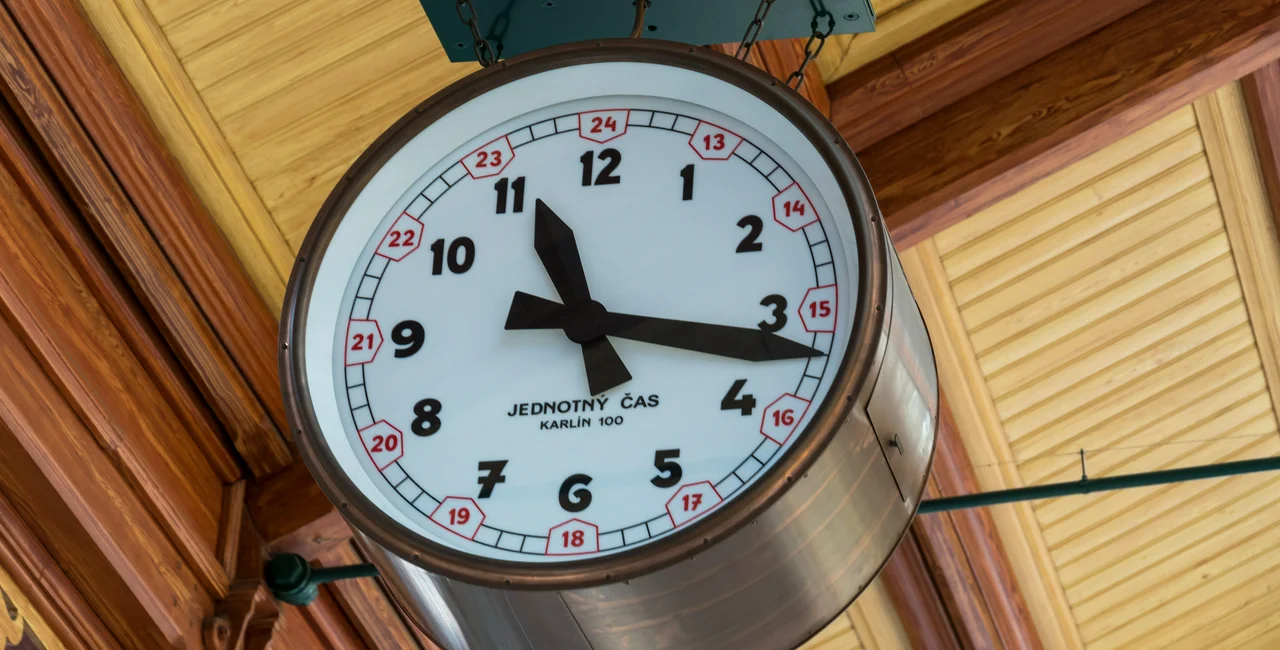The Czech Republic gains an hour on Sunday, making that long weekend many of us started already on Thursday's national holiday even longer. (Then again, who's truly eager to extend 2021 any longer than is necessary?)
Clocks in the Czech Republic will lose an hour on Sunday, Oct. 31, when they switch from 3 am back to 2 am. This means returning to Central European Time (CET) from Central European Summer Time (CEST), which began March 28. CET is often called Winter Time or standard time.
The Czech Republic along with all of Central Europe will return to being one after Coordinated Universal Time (UTC), formerly known as Greenwich Mean Time (GMT). Technically, the term Daylight Saving Time is not used in Europe.
The time change will affect some night bus lines and four long-distance trains operated by Czech Railways (ČD) and its partners. The affected trains will wait at a station for one hour. However, the time switch should not affect ČD regional trains or those of other railway carriers. People taking flights during the time change should check with their air carriers for any complications. Details on the affected trains can be found here.
The European Union for years has been promising to end the clock-switching routine. First 2019 and then 2021 were mentioned as the final switching dates. But Brexit and the Covid pandemic put the topic on the back burner. One issue is that Ireland and Northern Ireland could end up in different times zones for half the year.
Another stumbling block is that EU member states are unable to agree whether to permanently stick to Summer Time or Winter Time. Czechs also disagree on the issue.
Should the Czech Republic stop changing clocks?
In the middle of September, Labor Minister Jana Maláčová said the Czech Republic will continue to switch to Summer Time on the last Sunday of March and back to Winter Time on the last Sunday of October for the next five years.
Summer Time was originally implemented to contribute to energy savings, but due to increased energy efficiency, the savings are now minimal.
Czechoslovakia, and subsequently the Czech Republic, has been using Summer Time and Winter Time consistently since 1979.
Summer Time was first introduced during World War I. Most countries discontinued the practice after the war. It was used again in World War II but was widely canceled by the 1950s. In the late 1960s the energy crisis saw it reintroduced in some places.
As a result, different countries had different practices, and this caused problems with transport and communications. Starting in 1981 the European Community began issuing directives to standardize start and end dates for Summer Time, and there have been several adjustments over the years.
So far, the last adjustment was in 1997 when an EU directive set European Summer Time between 1:00 UTC on the last Sunday of March and 1:00 UTC on the last Sunday of October. That rule was extended indefinitely four years later and is still in effect.

While almost all clocks will change, the Astronomical Clock on Prague’s Old Town Square remains the same all year round. Its rather complex face shows several different times including Old Bohemian time, Babylonian time, sidereal time, as well as Central European Time.
The standard time display on the clock cannot be set forward or backward without throwing off the rest of the display – which also includes the position of the sun and moon in the Zodiac.












 Reading time: 2 minutes
Reading time: 2 minutes 



























